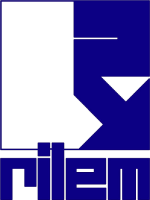Publications
Pro040
Study on Corrosion of Reinforcing Bar in Recycled Concrete
Title: Study on Corrosion of Reinforcing Bar in Recycled Concrete
Author(s): Tanaka
Paper category : conference
Book title: International RILEM Conference on the Use of Recycled Materials in Building and Structures
Editor(s): E. Vázquez, Ch. F. Hendriks and G.M.T. Janssen
Print-ISBN: 2-912143-52-7
e-ISBN: 2912143756
Publisher: RILEM Publications SARL
Publication year: 2004
Pages: 643 - 650
Total Pages: 8
Nb references: 4
Language: English
Abstract: Studies on utilization of recycled aggregate to concrete structures have been performed
increasingly in the decade in Japan in order to reduce the environmental load. Applying
recycled aggregate made from structures’ concrete in Chugoku district, it is indispensable to
investigate how much chloride is contained in recycled aggregate and how chloride contained
in recycled concrete affects corrosion in reinforcing bars, because sea sand was used widely in
the same district from 1960’s to 1980’s, chloride of which was not sufficiently washed off.
In the present study, internal chloride content of recycled aggregate produced in Chugoku
district was investigated, and then the influence of the internal chloride on corrosion of
reinforcing bar in concrete was studied in which NaCl equivalent to 3-kg/m 3 -chloride ion is
added in order to accelerate corrosion. Major parameters were water-cement ratio and
combination of aggregates, i.e., whether recycled coarse and/or fine aggregates are mixed or
not. All concrete specimens were exposed to 40 ˆ and one day-salty rain every week.
The results indicated that recycled aggregate contained water-soluble chloride of 0.2 kg/ton
for coarse aggregate and 0.36 kg/ton for fine aggregate, and that lower water-cement ratio was
effective in reducing corrosion area not only in normal concrete but also in recycled concrete.
Online publication: 2004-09-29
Publication type : full_text
Public price (Euros): 0.00
doi: 10.1617/2912143756.071
>> You must be connected to view the paper. You can register for free if you are not a member


